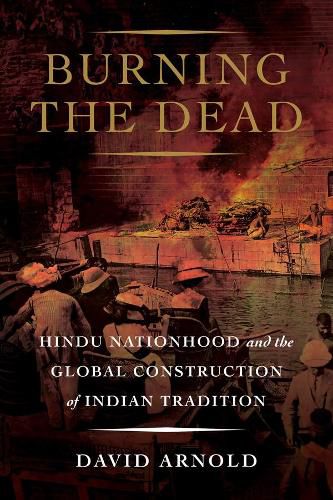Readings Newsletter
Become a Readings Member to make your shopping experience even easier.
Sign in or sign up for free!
You’re not far away from qualifying for FREE standard shipping within Australia
You’ve qualified for FREE standard shipping within Australia
The cart is loading…






Burning the Dead traces the evolution of cremation in India and the South Asian diaspora across the nineteenth and twentieth centuries. Through interconnected histories of movement, space, identity, and affect, it examines how the so-called traditional practice of Hindu cremation on an open-air funeral pyre was culturally transformed and materially refashioned under British rule, following intense Western hostility, colonial sanitary acceptance, and Indian adaptation. David Arnold examines the critical reception of Hindu cremation abroad, particularly in Britain, where India formed a primary reference point for the cremation debates of the late nineteenth century, and explores the struggle for official recognition of cremation among Hindu and Sikh communities around the globe. Above all, Arnold foregrounds the growing public presence and assertive political use made of Hindu cremation, its increasing social inclusivity, and its close identification with Hindu reform movements and modern Indian nationhood.
$9.00 standard shipping within Australia
FREE standard shipping within Australia for orders over $100.00
Express & International shipping calculated at checkout
Burning the Dead traces the evolution of cremation in India and the South Asian diaspora across the nineteenth and twentieth centuries. Through interconnected histories of movement, space, identity, and affect, it examines how the so-called traditional practice of Hindu cremation on an open-air funeral pyre was culturally transformed and materially refashioned under British rule, following intense Western hostility, colonial sanitary acceptance, and Indian adaptation. David Arnold examines the critical reception of Hindu cremation abroad, particularly in Britain, where India formed a primary reference point for the cremation debates of the late nineteenth century, and explores the struggle for official recognition of cremation among Hindu and Sikh communities around the globe. Above all, Arnold foregrounds the growing public presence and assertive political use made of Hindu cremation, its increasing social inclusivity, and its close identification with Hindu reform movements and modern Indian nationhood.